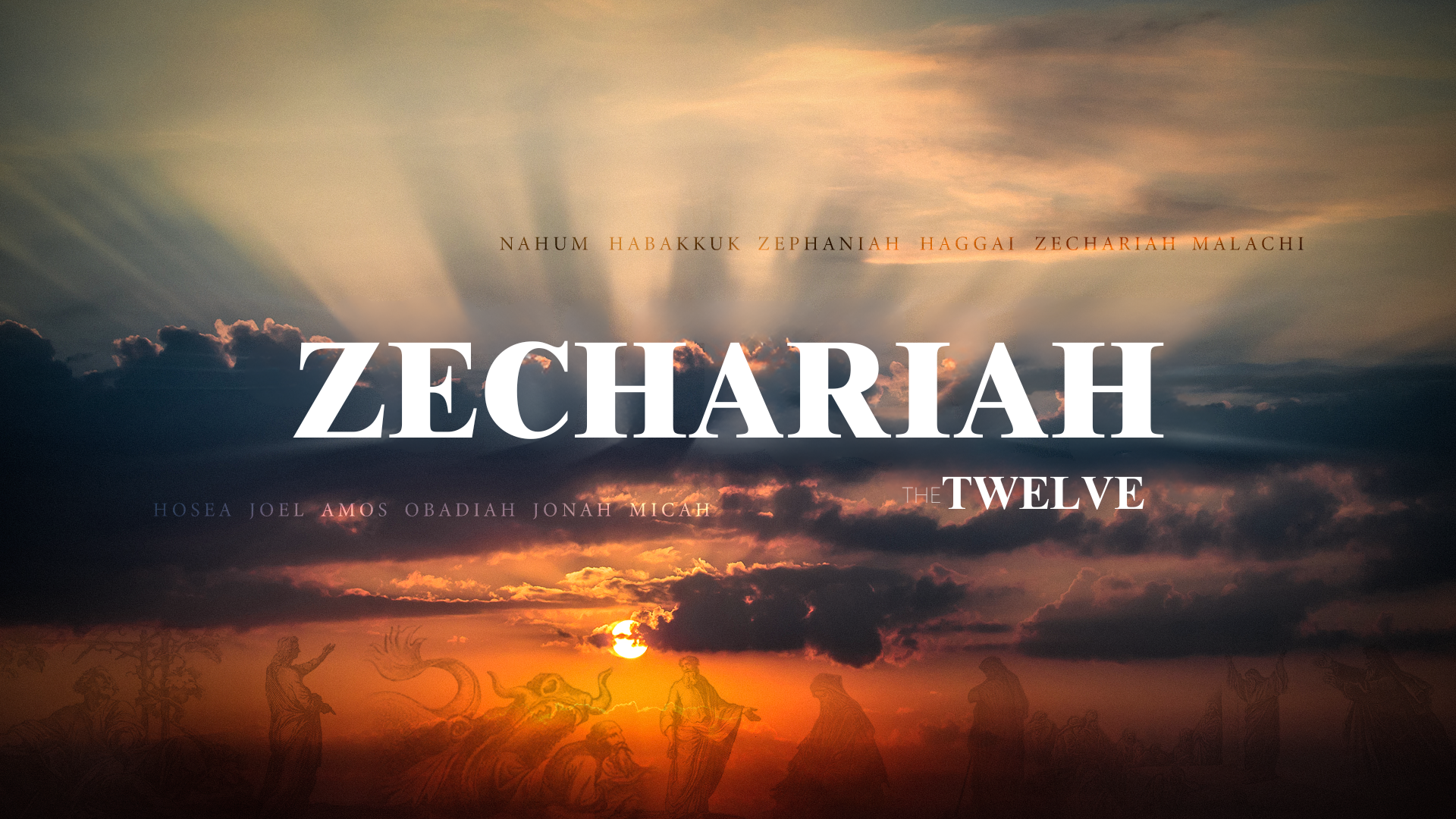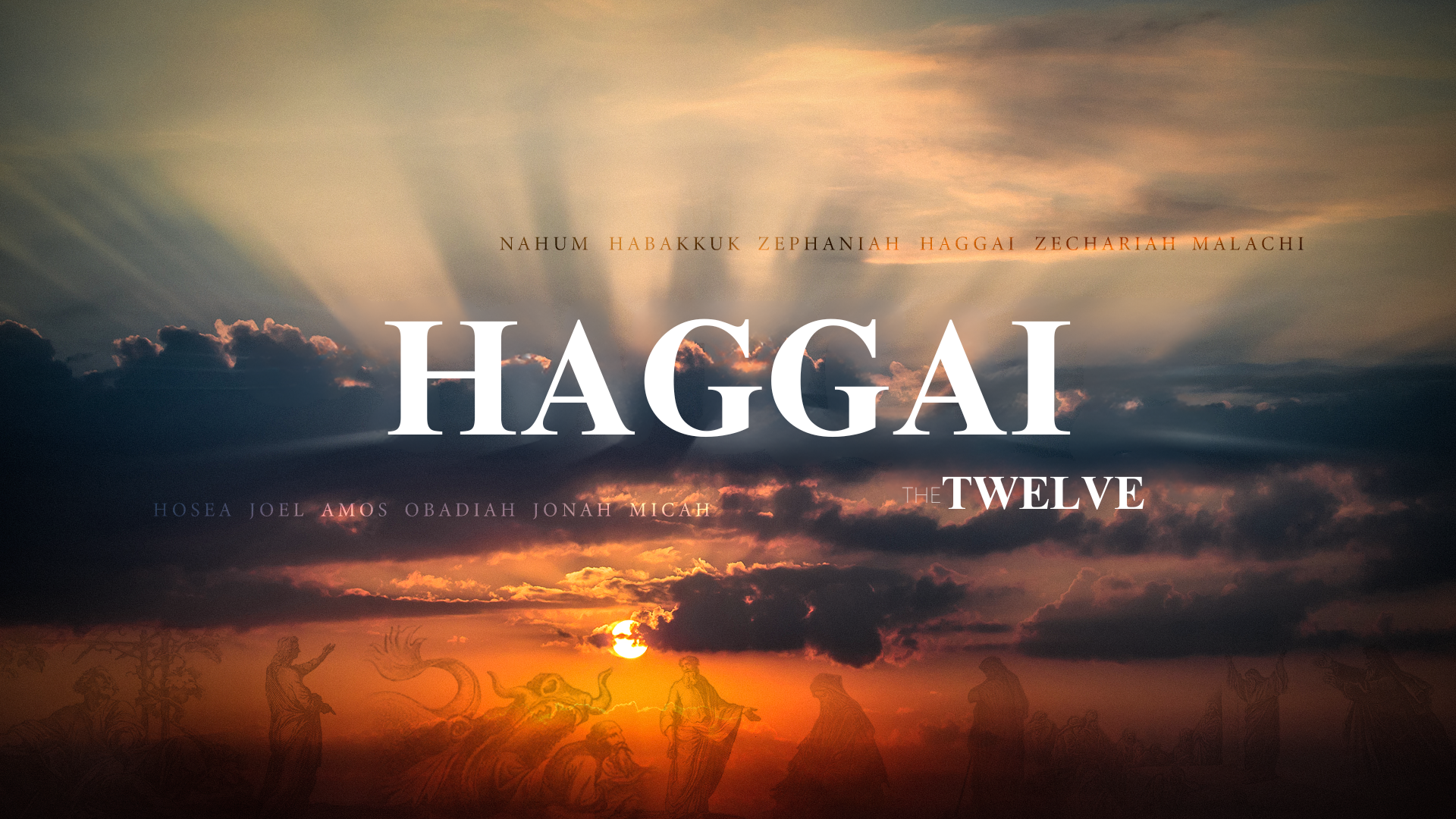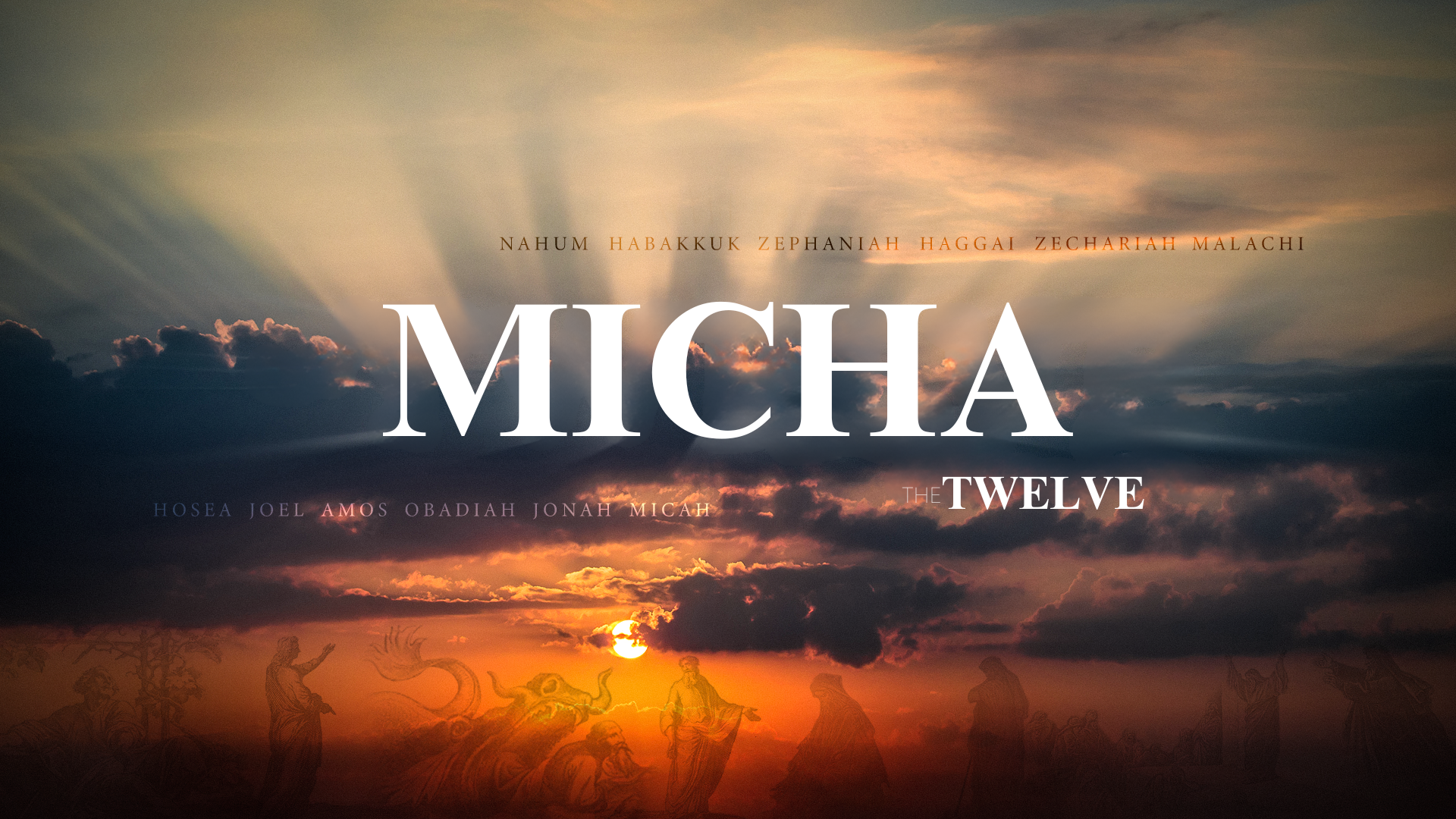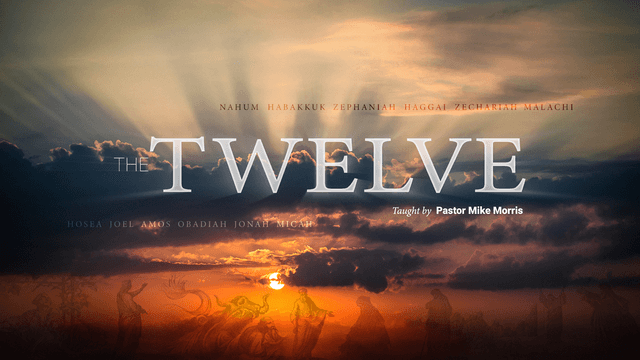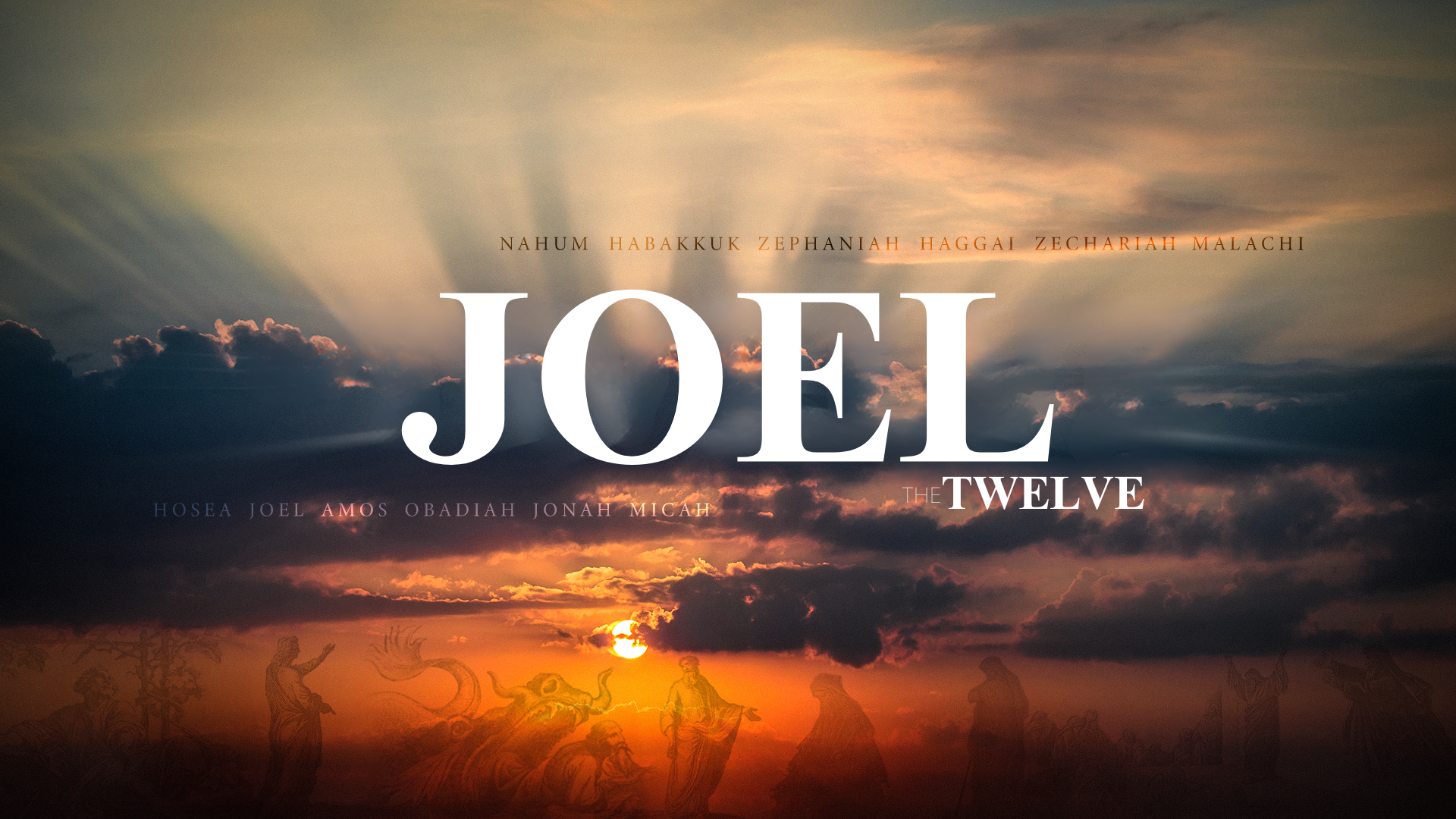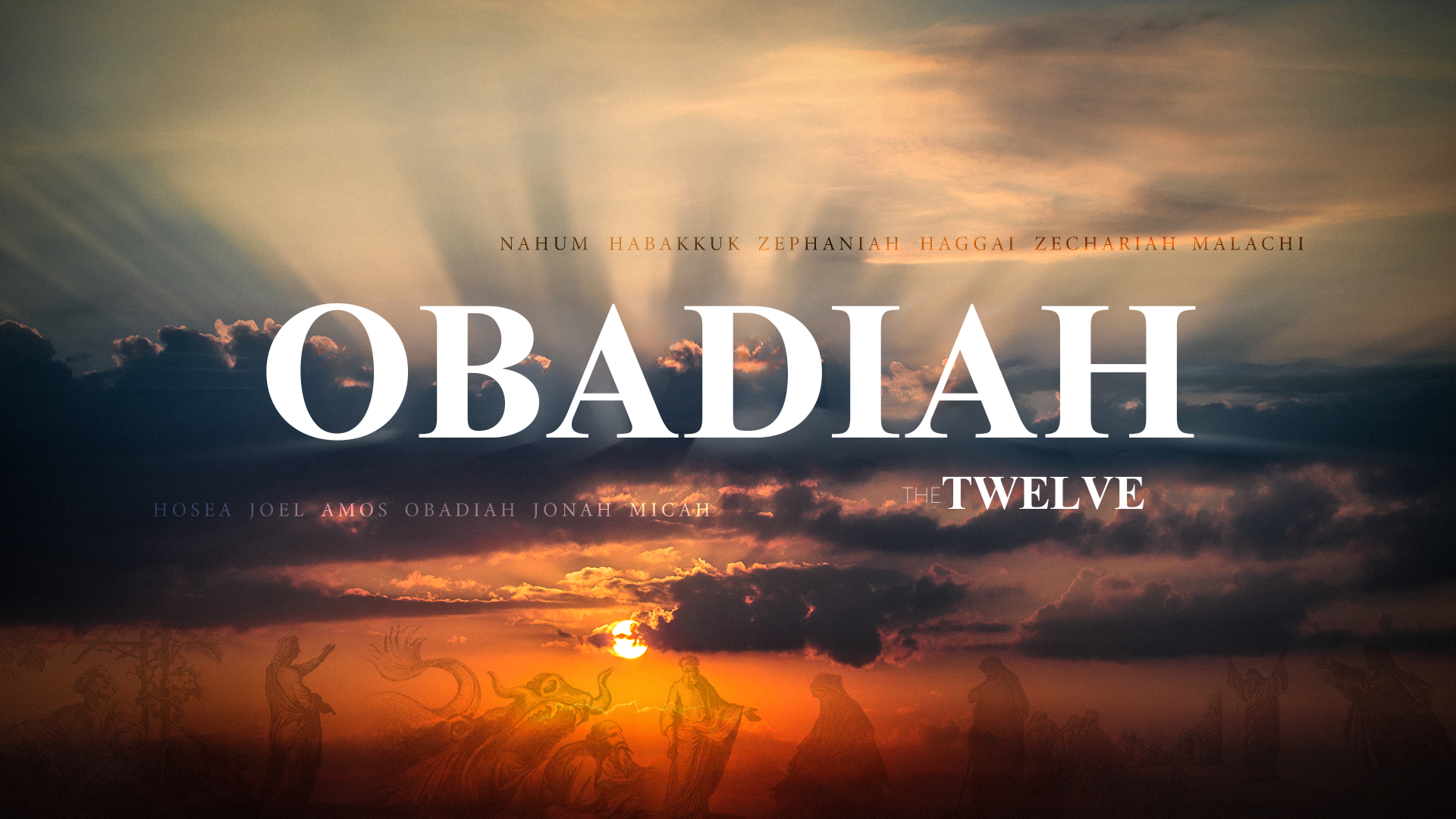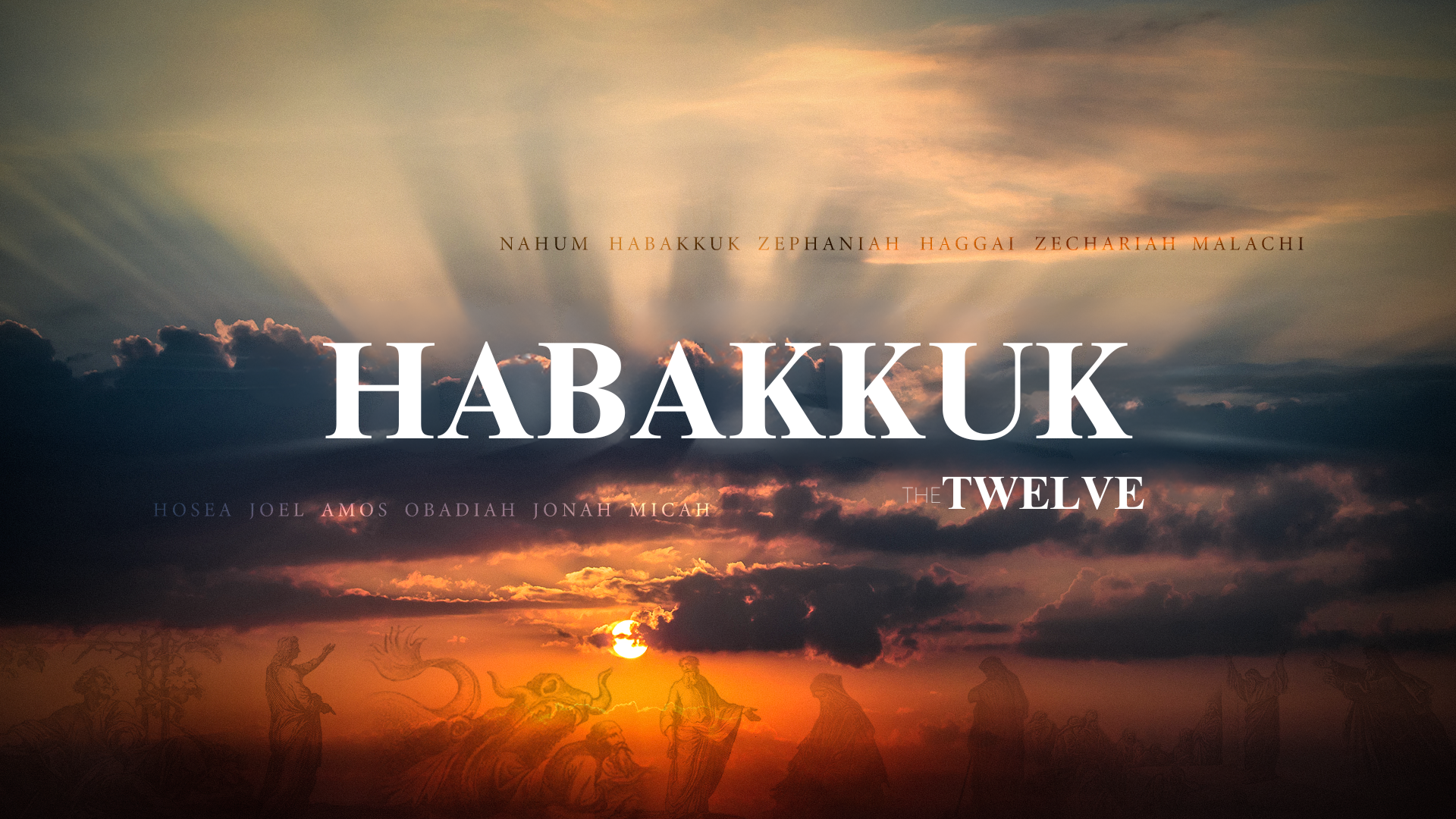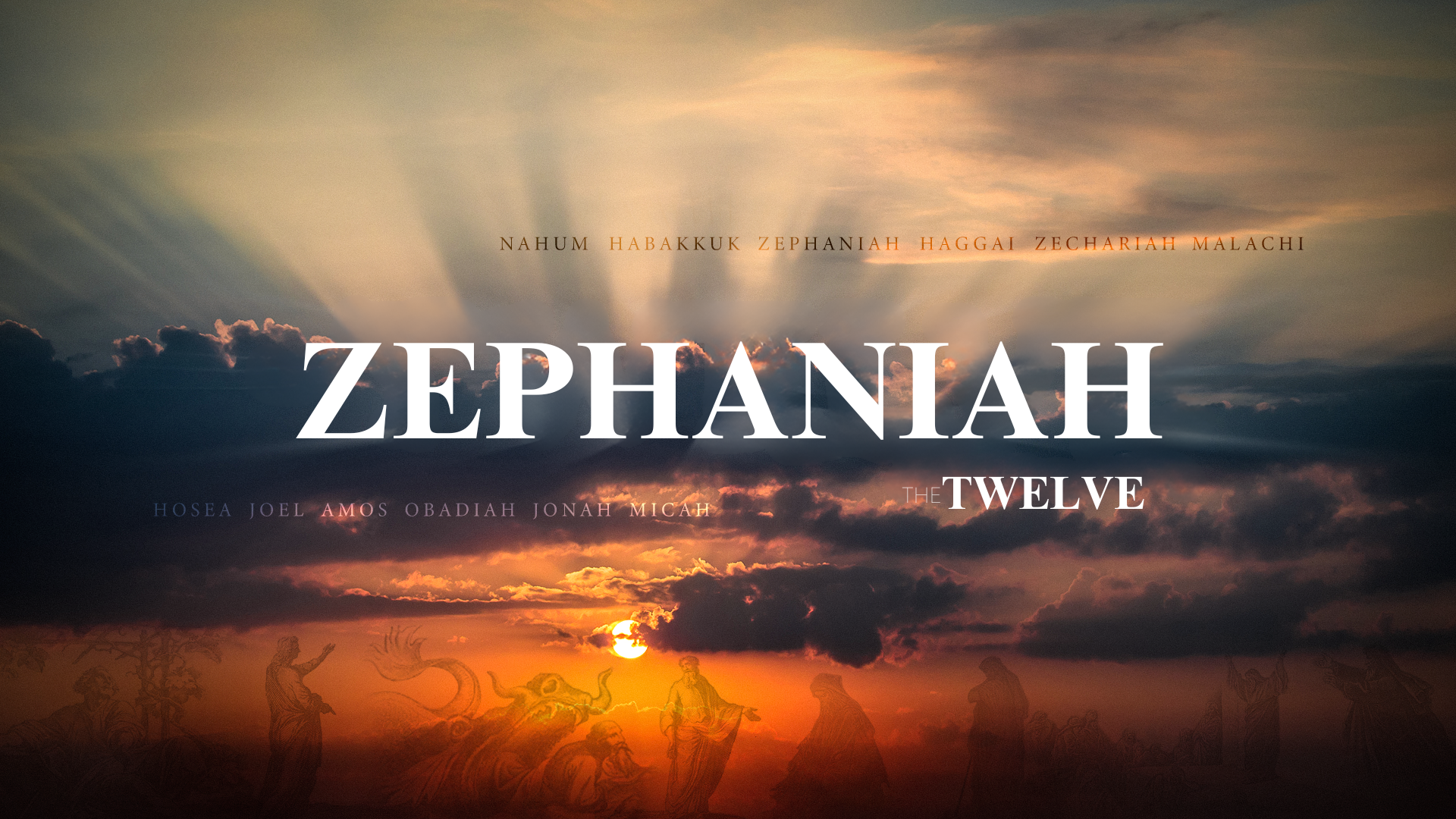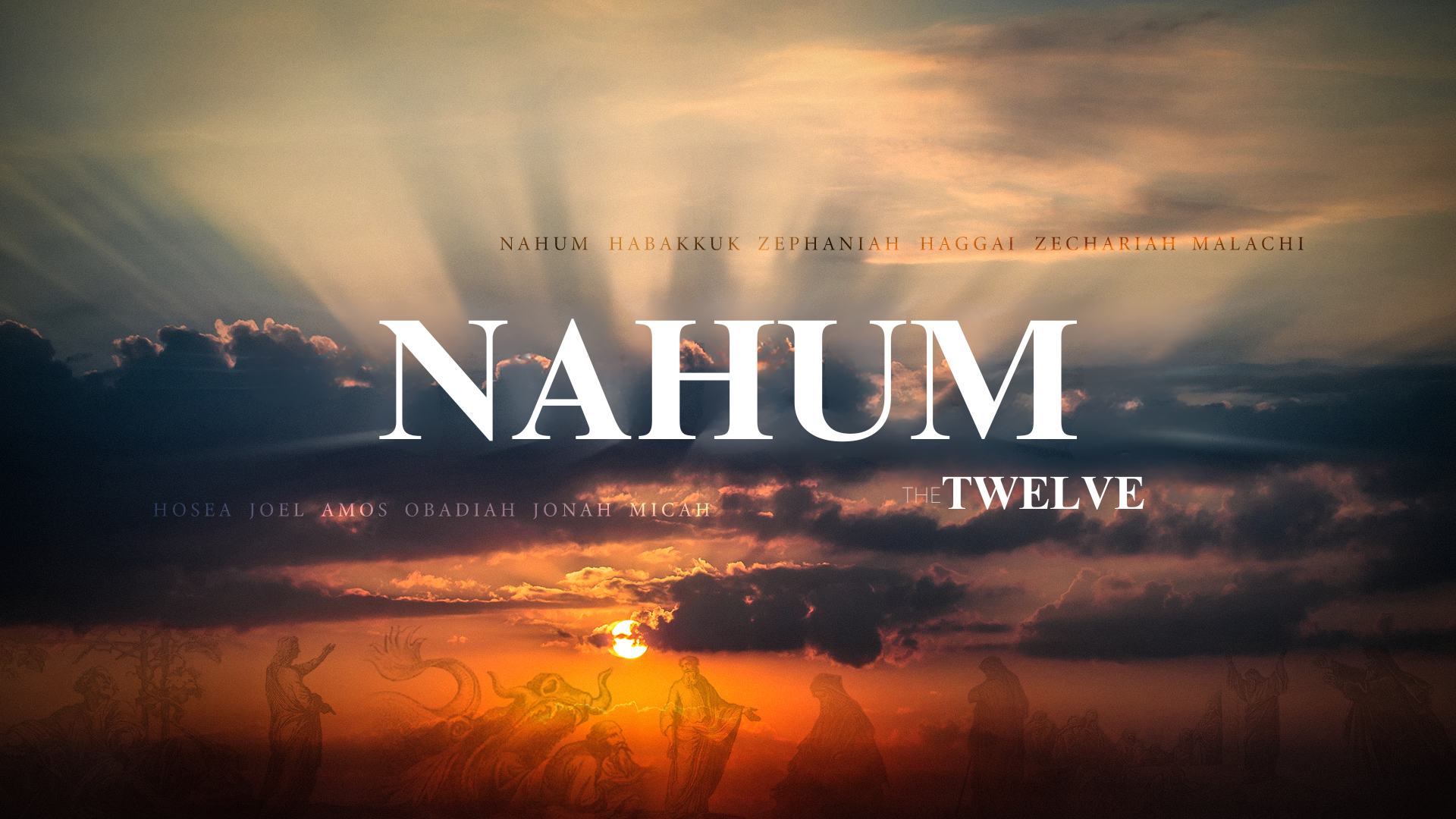MANUSCRIPT
Last week we began our study of chapter 6, which included the covenant lawsuit brought by the Lord against His people, and the ethical mandate of chapter 6 verse 8, Micah’s admonition to “do justice, love kindness, and to walk humbly with your God”...today we finish chapter 6, and over the next two weeks, we’ll study chapter 7, including a review of the book, as we finish the final prophetic word to the people of the northern kingdom of Israel...I expect to finish the book of Micah on February 27th...
The book of Micah is the transitional prophecy of the Twelve, the bridge between the prophets who spoke primarily to Israel in the north and those who spoke primarily to Judah in the south...
Now as we return to chapter 6, let’s review for a moment the framework of the chapter...it takes the form of a covenant lawsuit oracle, as God takes the roles of both judge and plaintiff, calling His people to account for their abandonment of the covenant and their rejection of His covenant faithfulness and love...creation is the witness and the people of Jerusalem and Judah are the defendants...last week the passage closed with the covenant ethical mandate of Micah 6.8...
He has told you, O man, what is good;
and what does the Lord require of you
but to do justice, and to love kindness,
and to walk humbly with your God?
Here, the Lord cries out to the defendant, bringing the evidence of infidelity to the covenant, in verses 9 through 12, then sentences them for their guilt in verses 13 through 16...Micah introduces the Lord’s presence first, as a bailiff might as the judge enters the courtroom, then God Himself speaks...the remainder of the chapter is written in the first person, the divine Word now speaking to the people...we’ll look first at Micah’s introduction...
Let’s enter the text at verse 9...
The voice of the Lord cries to the city—
and it is sound wisdom to fear your name:
The voice of the Lord returns to Jerusalem as a voice of truth and warning...Micah describes this moment with the word ”voice,” which renders the Hebrew word ‘qol’ (coal)...the Lord speaks to, and over, Jerusalem, denouncing sin, and declaring a curse over the city and its people...
As he introduces the Lord, Micah also advises the people of Judah, counseling them to seek out the wise choice to fear God, His Name, His authority, His power and sovereignty...for it is not just wisdom, but “sound” wisdom, effective, useful wisdom, to fear God...much as the Psalmist prays in Psalm 86.11...
Teach me your way, O Lord,
that I may walk in your truth;
unite my heart to fear your name.
The command to fear God...to revere Him, honor Him, to submit to His righteous authority, is a consistent theme through all Scripture...I Peter 2.17 says this...
17 Honor everyone. Love the brotherhood. Fear God. Honor the emperor.
The counsel of Scripture is to fear God...why? For that is sound wisdom...it is the proper response to the Almighty God...and when we fear God, we don’t need to fear anyone else...as Peter tells us, we are to honor others, love others, but fear only the Lord God... but that’s not true for the unbelieving world...Paul describes that in Romans 3.18, at the end of a passage about the universality of sin...and he saved the most damning indictment of all for last...
“There is no fear of God before their eyes.”
Now the Lord speaks...
“Hear of the rod and of him who appointed it!
10 Can I forget any longer the treasures of wickedness in the house of the wicked,
and the scant measure that is accursed?
11 Shall I acquit the man with wicked scales
and with a bag of deceitful weights?
12 Your rich men are full of violence;
and their tongue is deceitful in their mouth.
In the last phrase of verse 9, God speaks of judgment...the rod represents His discipline of Judah, first through the Assyrians in 701 B.C., then again in 605 to 587 B.C. through the Babylonians...the people of Judah likely either didn’t believe God would bring judgment upon them, or they didn’t see God’s purposes or hand in the judgment...but the witness of Scripture is clear: God Himself brought this calamity and suffering upon His people... “appointed” here means to ‘set aside or select for some purpose’ ... God would use ungodly nations to discipline His people in order to bring them back to Himself...
And the cause for the judgment is a familiar one...injustice and dishonesty within the covenant community...
10 Can I forget any longer the treasures of wickedness in the house of the wicked,
and the scant measure that is accursed?
11 Shall I acquit the man with wicked scales
and with a bag of deceitful weights?
Micah accuses the wealthy and powerful businesspeople of Judah of cheating through the use of dishonest scales, weights, and measures...in Israel in that day, there was no standard set of weights for business transactions...grain merchants, particularly, were able to use that to their advantage by using heavier weights on the scale when customers weighed out their currency to purchase grain, then using an undersized ephah, or in our culture, a bushel, to measure the grain to be purchased...thus unfairly profiting on both ends of the transaction...the practice was condemned in Israel by both Amos and Hosea...
Amos 8.4-6
4 Hear this, you who trample on the needy
and bring the poor of the land to an end,
5 saying, “When will the new moon be over,
that we may sell grain?
And the Sabbath,
that we may offer wheat for sale,
that we may make the ephah small and the shekel great
and deal deceitfully with false balances,
6 that we may buy the poor for silver
and the needy for a pair of sandals
and sell the chaff of the wheat?”
And because there wasn’t any other economic alternative for those growing the grain, they were continually cheated, season after season, until, as Amos says, the poor could be purchased for the price of a pair of shoes...
The Lord God takes notice of this falsely obtained wealth, which Micah describes as the “treasures of wickedness”
10 Can I forget any longer the treasures of wickedness in the house of the wicked,
and the scant measure that is accursed?
11 Shall I acquit the man with wicked scales
and with a bag of deceitful weights?
Four accusations here from the Lord...the dishonest merchants are storing up their treasures, the ill-gotten gains from their unjust trading, hoarding the goods of wealth and luxury in their homes...the implication is that the saving of the wealth is cause for judgment...the word for “treasures” is also found in II Kings 24.12b-14, where is speaks of the treasures of the house of the Lord, and the house of the king being lost in the Babylonian conquest...
Their treasures would indeed be lost...both the treasures of the wicked businesspeople, and the nation’s treasures to the Babylonians...
The last three accusations are linked to the merchant transactions themselves...
The “scant measure” is the ephah basket, which was too large if buying, and too small if selling...and probably wheat chaff would be mixed in, as Amos said of Israel...
And the Lord shall not acquit -- hold guiltless -- the man with wicked scales, scales that can adjusted in the merchant’s favor so as to cheat the farmer...nor a bag of deceitful weights, literally “two kinds of” weights, some to use that are heavier and some that are lighter, depending on what the merchant wishes to use...Solomon condemns dishonesty in weights and measures in Proverbs 20.23...
Unequal weights are an abomination to the Lord, and false scales are not good.
This falsehood is an abomination to the Lord...but it didn’t bother the merchant class...they simply saw it as an opportunity, as Amos said, to make the ephah small and the shekel great...anxious for the Sabbath to be over so trading and business could resume...
The Lord closes this series of accusations with a description of the wealthy of Judah...
12 Your rich men are full of violence;
your inhabitants speak lies,
and their tongue is deceitful in their mouth.
This should sound familiar...though this is directed to Judah, it is very similar to the prophetic word given to and about Israel...Judah had a front-row seat for God’s judgment of the northern kingdom, but that did not deter them from their own headlong rush into sin...apparently Judah’s wealthy weren’t content with their riches...instead they were full of violence, certainly against the poor of the land...previous oracles spoke of stealing land through legal but unethical transactions, a form of violence...and lying was their native language, spoken by a deceitful tongue...
To draw together this first portion of the text, we should return to the first line...
The voice of the Lord cries to the city—
In this context, the Lord is crying out, proclaiming to Jerusalem, take heed to your lives, for you must hear the One with the power to both judge and discipline...He has examined you and found you wanting...you are wicked in your conduct, cruel in your relationships, violent in your ways, and deceitful in your words...you are entirely deserving of the judgment oracle that follows...
The next passage, the final portion of chapter 6, is a wonderful example of a type of Scripture found in the Old Testament...it tends to be in the prophetic books, or the prophetic portions of the historical books...it is common to ancient cultures as a part of what historians call a suzerain treaty...a treaty between a king and a vassal or subordinate state or territory...Old Testament scholar Dr. John Walvoord describes Deuteronomy in terms of this treaty form...
“Deuteronomy follows the pattern of the vassal treaties typical of the second millennium B.C. When a king (a suzerain) made a treaty with a vassal country the treaty usually contained six elements: (a) a preamble, (b) a historical prologue (a history of the king's dealings with the vassal), (c) a general stipulation (a call for wholehearted allegiance to the king), (d) specific stipulations (detailed laws by which the vassal state could give concrete expression to its allegiance to the king (e) divine witnesses (deities called to witness the treaty), (missing in Deuteronomy since Israel’s God is the only true deity) and (f) blessings and curses (for obedience or disobedience to the treaty)”….Deuteronomy approximates this structure, with chapters 27-28 documenting the promised blessings and curses.
If you look carefully at Deuteronomy 28, particularly, you’ll notice the great similarity to Micah chapter 6...both contain what is known as futility curses...Deuteronomy 28 is broken into two main parts, blessings for obedience and curses for disobedience to the Law...the portion regarding curses is by far the longer of the two portions, from verse 16 through verse 68...it promises a variety of God’s curses upon the people of Israel if they fail to obey the covenant...one of those types is the futility curse, which we see more clearly in Micah 6...let’s look at the text...
13 Therefore I strike you with a grievous blow,
making you desolate because of your sins.
The overall impact of the Lord’s judgment here is caught in the single word “desolate” ...the nation would suffer great desolation brought about through both the Assyrian attacks of 701 B.C. and the eventual Babylonian reduction of Jerusalem by siege in 587 B.C., followed by the remaining people of Jerusalem and Judah going into exile in Babylon for seventy years...
The word echoes the opening chapter of Isaiah 1.7...there the prophet speaks of the coming destruction of Jerusalem and Judah...
Your country lies desolate;
your cities are burned with fire;
in your very presence
foreigners devour your land;
it is desolate, as overthrown by foreigners.
After this summary statement up front, the Lord’s judgment continues in detail..
14 You shall eat, but not be satisfied,
and there shall be hunger within you;
you shall put away, but not preserve,
and what you preserve I will give to the sword.
15 You shall sow, but not reap;
you shall tread olives, but not anoint yourselves with oil;
you shall tread grapes, but not drink wine.
Here begin the futility curses, named for the futility that God’s people experience when they rebel against Him and His covenant, and under His judgment find their work made useless, pointless, of no value...don’t forget, God is speaking to the rich and powerful, those for whom life appeared to be greatly blessed...but are they really...?
They shall eat, at least a little, but never experience the sense of being filled...it carries the idea of slow starvation, of never eating enough to not feel hungry...there will always be this nagging sense of disquiet, of lack, of unease...and even when there is more to eat, it’s never enough...
And if one were to try to set back or save some of the scarce food for later, it would not be preserved...the people will not able to accumulate things for themselves as they once did, storing up treasures of wickedness in their homes, and what they try to preserve will be destroyed, given to the sword...there’s an alternate, even more chilling translation possible from the Hebrew: you will press toward birth, but not give birth, and what you bring to birth I will give to the sword
They shall plant and sow, but each year the crop will fail...perhaps from drought, as God withholds the early and late rains so needed for cultivation in Palestine...think of the frustration and hopelessness as the farmer sows, then prays for the rain that never comes...hoping for a bountiful harvest that never appears...
The olives that were so valuable and essential would never result in the oil the people depended on for everything from their diet to their economy...
They would tread grapes into juice, then ferment the juice into wine, but never enjoy the wine...once produced, wine can spoil, as can olive oil, or perhaps both were lost to thieves or to the attacks of the Assyrians or Babylonians...what the enemy did not take for themselves, they would destroy...
Amos says much the same thing, connecting the judgment to the economic injustice inflicted by the wealthy in Israel against the poor...Amos 5.11...
Therefore because you trample on the poor
and you exact taxes of grain from him,
you have built houses of hewn stone,
but you shall not dwell in them;
you have planted pleasant vineyards,
but you shall not drink their wine.
The principle here is this: God will not allow us to experience His blessing from sources and methods, ways and means, other than Himself...and when we pursue His blessings, the good things of life, as the world says, apart from Him, we’ll find that it is a futile pursuit...Solomon tried that approach, and describes what he learned in the book of Ecclesiastes, summarized in the “vanity of vanities, all is vanity” -- the Hebrew word rendered “vanity” is ‘he-bel’ (he - vel), the quality of having no value or significance, of being futile...that’s a good description of life lived apart from God, seeking after the things of this world...we cannot experience God by pursuing the world...
The problem is, that’s the message we constantly hear from our culture...we have grown up and live in a world that exalts the things of the world as that which we should desire...and when we conform to that expectation, and seek after the things of the world, some will eventually discover, by God’s grace, that what the world promises -- satisfaction, enjoyment, and personal fulfillment -- cannot be found in the world at all, but only in relationship to God, our Creator and Lord...to pursue anything and anyone other than Him is to pursue futility...as the people of Israel painfully learned...there are a lot of lies in the world, but the Big Lie, the Lie that subsumes all other lies, is this...you can be like God...you can have everything you ever wanted apart from Him...you don’t need Him...to take that path in life will lead to a disappointing end, one where your labor is in vain, your efforts are futile, a life of hunger and thirst and dissatisfaction and loss...
God’s justice ensures that when we live in disobedience and rebellion before Him, we will not experience the blessings that would be ours when we walk in obedience and faithfulness...hear the words of the prophet Haggai 1.3-6...
5 Now, therefore, thus says the Lord of hosts: Consider your ways. 6 You have sown much, and harvested little. You eat, but you never have enough; you drink, but you never have your fill. You clothe yourselves, but no one is warm. And he who earns wages does so to put them into a bag with holes.
Does adversity come to those who are walking closely with God? Yes, from time to time...He uses such times to continue to grow us into further maturity and display His faithfulness...that’s different from a life of futility, when one continues to try to live according to their own selfish desires, in accord with the principles of the world, the flesh, and the devil, expecting from those life choices fulfillment, happiness, contentment, and security...when you walk in those ways, you can expect that life will not go well...there will be no sense of abiding wholeness and satisfaction, no sense of persistent peace...the Hebrew word ‘shalom’ is fitting here...it includes the meanings of being restored, settled, restful, whole...at peace
That understanding begins with the admonition, “consider your ways”
The Lord now summarizes the reason behind His judgment...
16 For you have kept the statutes of Omri,
and all the works of the house of Ahab;
and you have walked in their counsels,
that I may make you a desolation, and your inhabitants a hissing;
so you shall bear the scorn of my people.”
Who are these two people and why do they matter?
Omri was a commander of the army of Israel who rose to be king...I Kings 16.23, 25-26 gives us an overview of his reign...
23 In the thirty-first year of Asa king of Judah, Omri began to reign over Israel, and he reigned for twelve years; six years he reigned in Tirzah. 25 Omri did what was evil in the sight of the Lord, and did more evil than all who were before him. 26 For he walked in all the way of Jeroboam the son of Nebat, and in the sins that he made Israel to sin, provoking the Lord, the God of Israel, to anger by their idols.
As idolatrous as Omri was, his son, Ahab, was worse...I Kings 16.29-33...
29 In the thirty-eighth year of Asa king of Judah, Ahab the son of Omri began to reign over Israel, and Ahab the son of Omri reigned over Israel in Samaria twenty-two years. 30 And Ahab the son of Omri did evil in the sight of the Lord, more than all who were before him. 31 And as if it had been a light thing for him to walk in the sins of Jeroboam the son of Nebat, he took for his wife Jezebel the daughter of Ethbaal king of the Sidonians, and went and served Baal and worshiped him. 32 He erected an altar for Baal in the house of Baal, which he built in Samaria. 33 And Ahab made an Asherah. Ahab did more to provoke the Lord, the God of Israel, to anger than all the kings of Israel who were before him.
Why does God name these two kings of Israel, and judge Judah for following in their counsel and ways?
God is going back to the root cause of the wrongful injustice within the community...their sin of idolatry...because idolatry -- being in wrong relationship to the living God, setting our focus on our own false gods of wealth, desire, power, relationships -- results in injustice; when we are in wrong relationship to God, we will ultimately be in wrong relationship to people, too
Time was running out for Jerusalem...but what about our city? If the voice of the Lord were to cry to our city, to us today, what would He say? Would He speak only of condemnation as we have refused His call to repentance and forgiveness for too long? Would He pronounce upon us and our land the same curses of futility which fell upon Jerusalem and Judah? Would our future look as bleak as theirs, hopes of joy and purpose and fruitfulness lost in the chaos and confusion of prideful, arrogant, greedy sin, of self-directed lives focused on personal gain, distant from any light of compassion and love? Would the voice of the Lord cry out over our city words of judgment, or words of hope? Is there yet time? Is there yet a chance for our city, our nation, our people...for us...to turn back to God?
In 1843, Charles Dickens wrote a novella entitled, “A Christmas Carol”...you’re probably familiar with the story: one Christmas Eve, the miser, Ebenezer Scrooge, is visited by three spirits, of Christmas Past, Present, and Yet to Come, showing him vignettes from his life...and as the story closes, Scrooge is shown a grave, unkempt and unknown, and a tombstone above that grave...in fear and desperation, Scrooge cries out to the spirit, “Are these the shadows of the things that Will be, or are they shadows of things that May be, only?”
Our God is a Sovereign God, yes...but He also is a merciful God, patient toward sinners, and toward His people...
Amos 5.6 says it this way...seek the Lord that you may live
Hebrews 3.12-13...
12 Take care, brothers, lest there be in any of you an evil, unbelieving heart, leading you to fall away from the living God. 13 But exhort one another every day, as long as it is called “today,” that none of you may be hardened by the deceitfulness of sin.
Church, don’t believe the world’s lies...seek the Lord and live...that His cry over our city would yet lead us, and the lost, to repentance...

Taught by Mike Morris
Associate Pastor of Verse By Verse Fellowship
The Twelve Series
